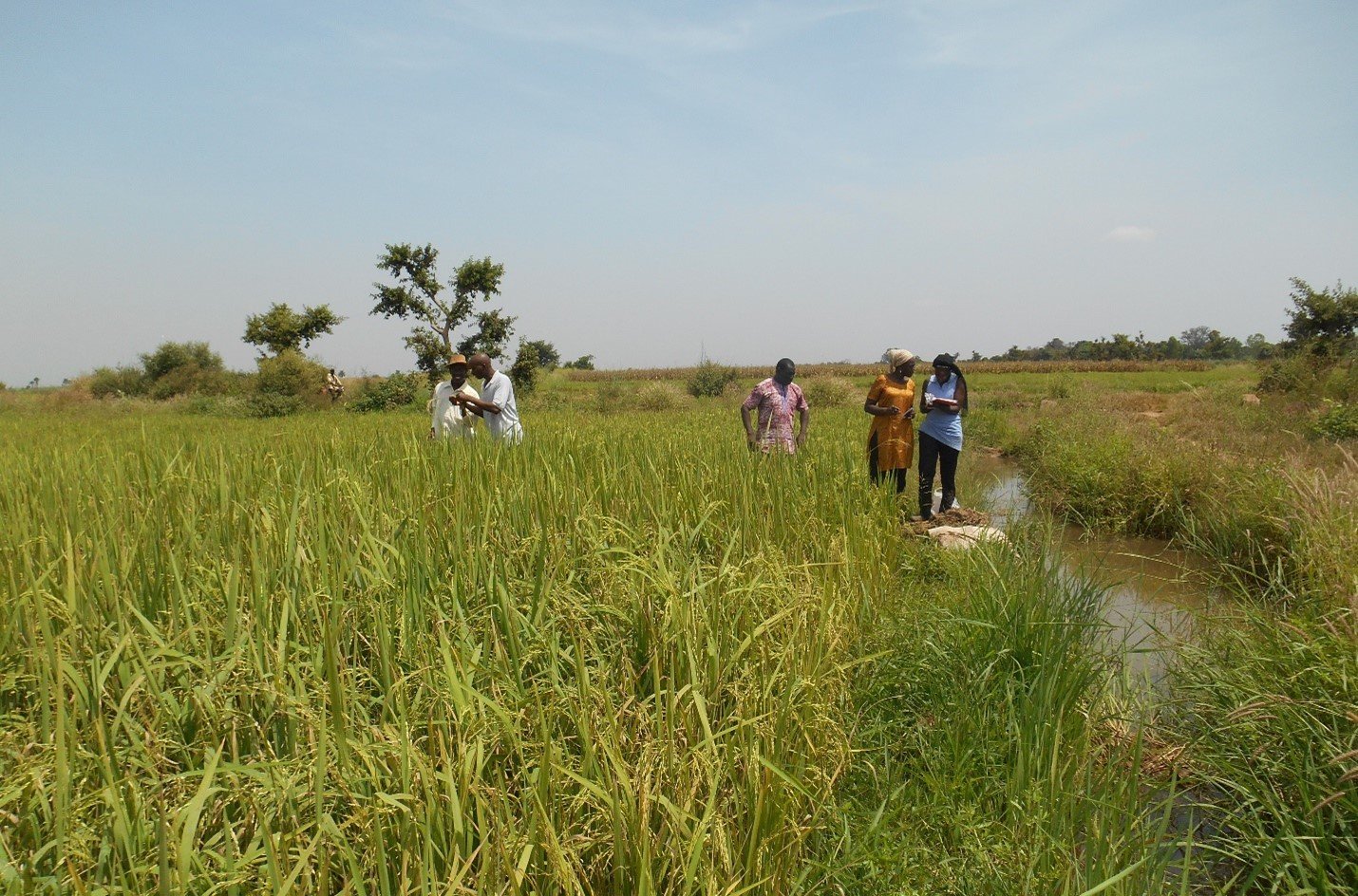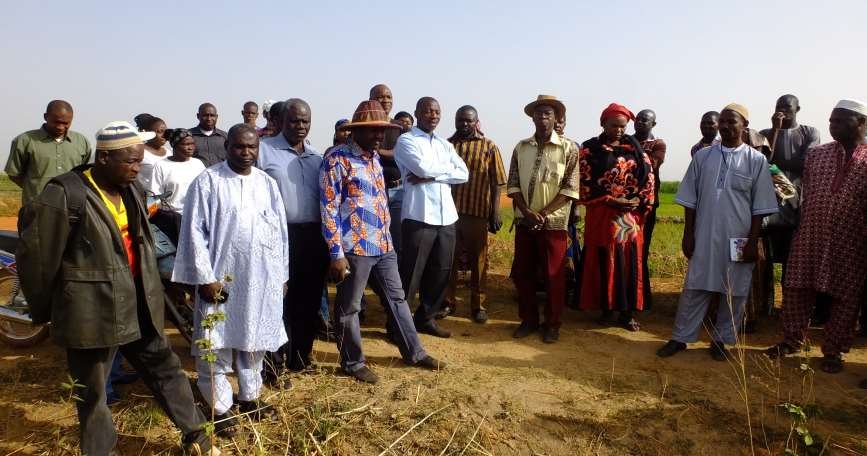|
Cycle 5 (2015 Deadline)
More rice for Africa: enhancing smallholder farmers’ rice yields in Africa through the use of efficient and low cost endophytic Actinomycetes biopesticide
PI: Amadou Hamadoun Babana (amadou.babana@usttb.edu.ml), University of Sciences, Techniques and Technologies of Bamako (USTTB)
U.S. Partner: David Weller, U.S. Department of Agriculture, Agricultural Research Service, Wheat Health, Genetics, and Quality Research Unit
Project Dates: December 2016 - December 2019
Project Overview
 | | | Students collecting data at a treated rice field. Photo credit Dr. Babana | |  | | | Visit to rice fields in collaboration with rice farmers at OPIB. Photo credit: Dr. Babana | |
Rice is a crucial and strategic cereal crop for more than half of the population in sub-Saharan Africa, particularly in Mali. Unfortunately, diseases, primarily bacterial leaf blight and rice yellow mottle virus disease, cause the average rice yield to be below the global average. Chemical pesticides can control pathogen growth and dispersal and improve rice yield, but their high cost and harmful effects on human health and the environment limit their use in smallholder rice farms. Endophytic bacteria, which have been shown to promote plant growth or pathogen suppression or to activate plant defense systems, can benefit plants through enhanced resistance to biotic and abiotic stresses and plant growth promotion. The use of these bacteria for disease management has great potential in the agricultural systems of West Africa.
This PEER project sought to increase food security in Mali through the production and integration of environmentally friendly endophytic bacterial biopesticides into rice production systems. Researchers produced a low-cost biopesticide and a strategy for long-term sustainable rice pathogen biocontrol technology, tested by smallholder rice farmers in Africa.
Final Summary of Project Activities
Dr. Babana and his colleagues collected baseline information from farmers, traders, and pesticide processors on crop production parameters, including area under rice cultivation, land tenure arrangements, varieties of rice cultivated, rice cropping systems, and cost of rice production. They installed endophytic inoculum production facilities at the PI’s institution, where they formulated biopesticides from selected endophytes. The team also organized training courses for farmers and local technicians on modern biopesticides.
The researchers tested their formulation on plots infested with rice gail midge, seeing a 278% increase in rice production in plots treated with the biopesticides versus the control plots. The biopesticide was also efficient in controlling rice yellow mottle virus and bacterial blight. The PEER team also started producing the biopesticides for farmers’ field demo trials supervised by Office des Périmètre irrigués de Baguineda (OPIB) technicians and took soil and plant samples to analyze their microbiome. More than 100 rural women, agriculture technicians, OPIB, and Office du Niger staff members were trained on the biopesticides. The success of the project attracted women farmers’ associations, which have prepared a business plan and proposal to finance, in part, at least one biopesticide production unit.
The PEER team visited the University of Minnesota, to share their results and plan future research, as well as meet researchers working at the Plant Pathology Department. A bioinformatics student on the team stayed for five months to sequence and analyze DNA from the soil and plant samples. U.S. co-partner Stephen Machado also visited Mali to train farmers in business planning and biochar production to support biopesticide production. The PEER team also shared their results through two published articles and several technical presentations, as well as multiple meetings with farmers and government agricultural agencies. They received many requests from rice smallholder farmers for biopesticides for the following growing season. A journalist from the French network Radio France Internationale visited the experimental fields and did reports on the biopesticide that were published in Morocco, France, and Switzerland. During the project period, the PI and team received several additional grants to continue their work, for a total of $500,000, and Dr. Babana also received a new award under PEER Cycle 8 to continue the work.
Publications
Marina Teixeira Arriel-Elias, Maythsulene I. S. Oliveira, Valacia Lemes Silva-Lobo, Marta Cristina Corsi Filippi, Amadou H. Babana, Edemilson Cardoso Conceição, and Marcio Vinicius de C.B. Cortes. 2018. Shelf life enhancement of plant growth promoting rhizobacteria using a simple formulation screening method. African Journal of Microbiology Research 12(5): 115-126. https://doi.org/10.5897/AJMR2017.8787
Amadou Hamadoun Dicko, Amadou Hamadoun Babana. Adounigna Kassogué, Rokiatou Fané, Djeneba Nantoumé, Djeneba Ouattara, Kadia Maiga, and Sognan Dao. 2018. A Malian native plant growth promoting Actinomycetes based biofertilizer improves growth and yield. Symbiosis 75: 267–275. https://doi.org/10.1007/s13199-018-0555-2
Back to PEER Cycle 5 Grant Recipients
|
|
|
|





